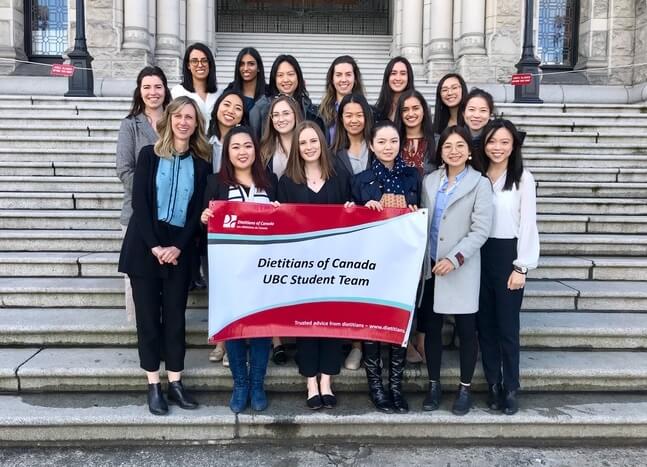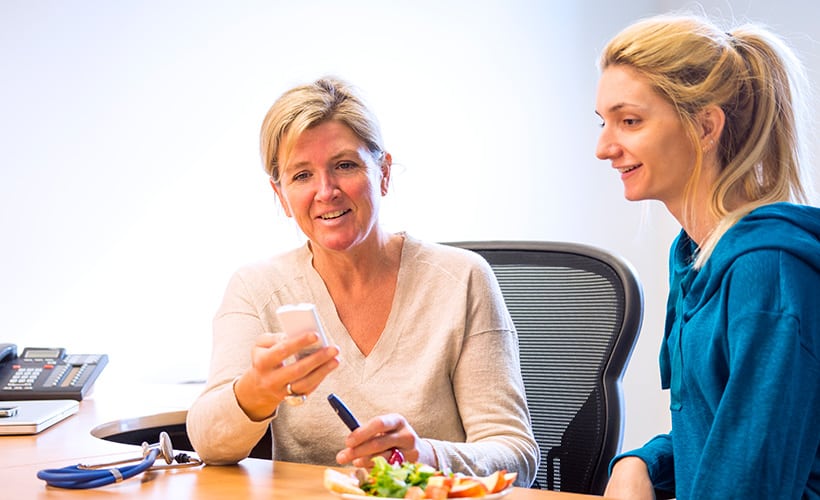All Categories
Featured
Table of Contents
-1
In the United States and many other nations, a dietitian is a board-certified food and nourishment expert. They are extremely informed in the area of nutrition and dietetics the scientific research of food, nutrition, and their impact on human health and wellness. Via comprehensive training, dietitians acquire the expertise to supply evidence-based medical nourishment therapy and dietary therapy customized to fulfill a person's demands.
-1To make these qualifications dietitians-to-be have to first make a bachelor's level or equal credits from a recognized program at an university or university. Normally, this calls for an undergraduate scientific research degree, consisting of courses in biology, microbiology, natural and not natural chemistry, biochemistry, makeup, and physiology, as well as even more customized nutrition coursework.
Clinical Dietitian – Waterford
-1This allows them to analyze severe needs, focusing on dangerous problems. Inpatient and outpatient dietitians additionally offer nutrition education and learning to people with specialized requirements, such as those freshly out of surgical treatment, in cancer treatment, or diagnosed with chronic illnesses like diabetic issues or kidney condition. In the outpatient setup, they offer extra extensive dietary therapy working towards a nutrition-oriented objective.
-1They can additionally advocate for public laws with a concentrate on nutrition, food, and wellness issues. Research dietitians commonly operate in research study health centers, companies, or universities. They run within a research study group headed by a key private investigator and perform nutrition-focused interventions. When dietitians have earned their qualifications and are operating in the area, they can take place to concentrate on a specific subcategory, such as pediatrics or sports dietetics.
-1Others may function as health and wellness and nutrition experts in media or as public audio speakers (Nutrition and Lifestyle Coaching). Dietitians are certified to manage nutrition therapy throughout a span of acute and persistent conditions.
Dietitian For Weight Loss
-1In lots of states, such as Alaska, Florida, Illinois, Maryland, Massachusetts, and Pennsylvania, RDs and CNSs are given the very same state license, typically called an Accredited Dietitian Nutritionist (LDN) license. In states that don't regulate the usage of this term, anyone with a passion in diet regimen or nourishment might call themselves a nutritional expert.
-1Nonetheless, due to the fact that uncredentialed nutritionists usually do not have the proficiency and training for medical nourishment therapy and nourishment counseling, following their guidance might be thought about hazardous (). Before getting in touch with a nutritionist, you may intend to examine whether your state manages who might utilize this title. In the U.S. states that do not control the term, no degrees or qualifications are called for to be a nutritional expert.

-1
In states that do mandate licensure, the CNS or RD credential may called for. Those with CNS qualifications are health and wellness specialists like registered nurses or doctors with innovative health degrees who have sought additional coursework, completed monitored method hours, and passed an examination managed by the Board for Accreditation of Nutrition Specialists.
-1While some of these methods might have robust clinical backing, others may not. Giving nutrition guidance without the appropriate expertise and training can be hazardous, specifically when counseling those with health and wellness problems. If you are thinking about speaking with a nutritional expert, you might desire to ask if they are a CNS or have state licensure or certification, or one more credential.
Accredited Sports Dietitian
-1Numerous states especially control this term. In addition, nutritional experts may go after an advanced CNS qualification.
-1It can be challenging to help people make genuine, long-term adjustments in their lives. Nevertheless, when you get a successful situation, the payback can be profoundly gratifying. If it's a job alternative that you want to pursue, there are two major career choices available to you. Both dietitians and nutritional experts offer a series of nutrition-based solutions to clients.
-1They have to have finished some level of education in their field. They are likewise called for to have actually completed as much as a year of monitored work, functioning within an assisted program at a health care center, catering company, or neighborhood body. Dietitians have much higher expectations put on their capacities and degree of expertise.
-1This suggests that there is no body that oversees their credentials and no especially rigorous standards that nutritionists need to comply with in order to be able to exercise. Dietitians, on the other hand, are signed up with nationally identified bodies, such as the Dietitians Association of Australia. They should comply with the National Proficiency Requirements for Dietitians.
Fertility Nutritionist – Waterford

-1
However, you can exercise as a nutritional expert without the very same degree of accreditation as a dietitian. Nutritionist training courses can vary in size and top quality, with some as short as 6 weeks and covering far much less material than a dietetics training course. Relying on your education and learning supplier, you can acquire a significant quantity of expertise through examining a simple nourishment program; nevertheless it is very important to examine the training course material before beginning.
-1This can consist of participating in sector seminars or checking out industry magazines. Nutritional experts, on the various other hand, generally earn their certifications in order to supplement various other certifications and offer far better recommendations to their customers. Nutritionists can get employment in a variety of fields, consisting of public wellness suggestions, suggestions for individuals, and collaborating with exclusive organisations.
-1Nutritionists can function with showing off organisations, health clubs, colleges and encourage media electrical outlets on fundamental terms and correct use of terms. Dietitians can work in many of the exact same duties as nutritionists.
Child Nutrition Guidance (Waterford 6152)
-1Dietitians commonly function with more clinically sensitive customers. These can include those with diabetes mellitus, allergies, excessive weight, cancer and stomach illness. Due to the fact that of the high degree of expertise needed to offer solutions to these people, just recognized dietitians are allowed to supply care. A few of the higher degree roles with medical care institutions can be extremely gratifying, and pay quite well.
-1In Australia there is a distinction between a dietitian and various other dietary wellness companies including nutritionists. All dietitians are nutritional experts, yet nutritional experts without a dietetics certification can not call themselves a dietitian. While there are similarities between a dietitian and nutritional expert there are distinctions in credentials and regulation. The dietetic occupation is controlled and fulfills rigorous criteria as set out by the National Alliance of Self Regulating Health And Wellness Professions (NASRHP).
-1Dietitians with the Accredited Practising Dietitian (APD) credential commit to continuous training and education and learning throughout their careers. As a career, nutritionists are not managed in Australia under NASRHP or accredited under a single governing body.
Nutritionist For Weight Gain – Waterford
-1If you have a persistent health and wellness condition and a treatment strategy from your general practitioner, you may have the ability to declare a Medicare refund when you see an APD. Find out extra about aid with expenses when seeing a dietitian. The primary function of people functioning in the career of dietetics is symbolized in this statement: The occupation of dietetics adds to the promo of health and wellness and the prevention and therapy of health problem by optimising the nourishment of populations, areas and individuals.
Table of Contents
Latest Posts
Dietwise.net.au - Children
Resources - Dietwise.net.au – Kiara
Cindy Tran
More
Latest Posts
Dietwise.net.au - Children
Resources - Dietwise.net.au – Kiara
Cindy Tran